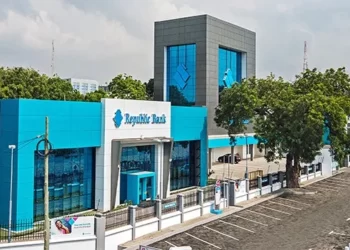The last few weeks have seen a boom on the short-term market instrument, with the Treasury bills (T-bills) recording a significant surge in demand.
Mrs Ruth Ofori, a financial analyst and the Chief Executive Officer (CEO) of Lolyfx LTD in an interview with the Vaultz News, has attributed the recent spike in demand of the T-bills to a renewed sense of optimism in the new John Mahama government.
“Yes, when you look at the data, in last two weeks, the government recorded 55% oversubscription and in last week, it recorded 39% oversubscription in its recent treasury bill (T-bill) sale. If you follow the pattern, there is only one explanation to this and that is, the surge in demand for short-term government debt instruments signals a renewed hope in the policies and stability promised by the new administration led by President John Dramani Mahama.”
Mrs Ruth Ofori
According to the analyst, political transitions often bring about uncertainty, but in this case, the new government has successfully managed to instill optimism among investors. She thus iterated that this surge in T-bill demand stems from confidence in the administration’s ability to deliver on its economic promises.
“Key reforms proposed by the new government, including fiscal discipline, reduction of debt levels, and policies aimed at bolstering private sector growth, have resonated with both institutional and individual investors. By addressing concerns over inflation, currency depreciation, and fiscal sustainability, the administration has created an environment conducive to investor trust.”
Mrs Ruth Ofori
Treasury Bills, A Safe Haven
Mrs Ruth Ofori, while brainstorming on the rationale behind investors switching to the short end of the market explained that Treasury bills are widely regarded as safe investment instruments, particularly in uncertain economic climates. “They offer minimal risk since they are backed by the government and provide predictable returns. As such, the oversubscription of T-bills is often a reflection of growing confidence in the government’s creditworthiness and its ability to meet short-term obligations,” she noted.
Moreover, she noted that T-bills serve as a reliable option for risk-averse investors seeking to preserve capital. “In the current context, the high demand for these instruments demonstrates that investors are willing to entrust their funds to the government, confident in its ability to manage the economy effectively,” she added.
Mrs Ofori averred that the central bank’s monetary policy has complemented government efforts, creating a conducive environment for T-bill investments. She explained that by maintaining interest rates at sustainable levels and addressing inflationary pressures, the central bank has made T-bills an attractive option for risk-averse investors.
“Furthermore, the stability of the local currency has enhanced the appeal of government securities, reducing the perceived risks associated with holding assets in the domestic market. This alignment between fiscal and monetary policies has been instrumental in boosting demand for T-bills.”
Mrs Ruth Ofori
What Does This Mean for the Economy?
On the implication for the economy, the analyst noted that the oversubscription of T-bills, firstly, provides the government with much-needed liquidity to fund its short-term obligations, including public sector salaries, infrastructure projects, and debt servicing. This, according to her, ensures the smooth functioning of the economy and builds investor confidence in the government’s ability to meet its financial commitments.
Secondly, she noted that the strong demand for T-bills signals a vote of confidence in the economy’s stability. “Such optimism can encourage foreign direct investment (FDI) and increase participation in other financial markets. It also creates a ripple effect, fostering a positive cycle of growth and stability”.
However, it Mrs Ofori noted that is important to note that over-reliance on T-bill financing could pose risks. She explained that excessive borrowing to meet immediate needs without addressing long-term structural issues may lead to unsustainable debt levels. Analysts caution the government to balance short-term funding with efforts to promote long-term economic growth and diversification.
Challenges and Opportunities
Despite the promising outlook, she noted that challenges remain. “Sustaining investor confidence will depend on the government’s ability to deliver on its promises. Failure to implement proposed reforms or mismanagement of borrowed funds could erode the goodwill currently observed in the market,” she stated.
“The government also faces the task of reducing reliance on short-term debt instruments like T-bills. While they provide immediate liquidity, they come at the cost of frequent rollovers and high interest payments. Diversifying the debt portfolio with long-term instruments and exploring alternative revenue sources will be critical to maintaining fiscal sustainability.”
Mrs Ruth Ofori
On the flip side, Mrs Ofori indicated that this renewed investor confidence presents an opportunity for the government to deepen financial markets. By introducing innovative instruments such as green bonds or infrastructure bonds, the government can attract a wider pool of investors and channel funds into critical sectors.
Meanwhile, in the latest auction results, the government received a total of GH¢8.890 billion from bids tendered by investors, primarily banks, and accepted GH¢8.839 billion against a target of GH¢6.353 billion. Approximately GH¢5.6 billion, representing 63.9% of the total bids, came from the 91-day bill, with GH¢5.648 billion accepted. For the 182-day bill, GH¢1.318 billion was tendered, out of which GH¢1.307 billion was accepted.
The 364-day bill saw GH¢1.883 billion tendered, all of which was accepted. However, rising interest rates raised concerns about the government’s mounting interest costs, with the yield on the 91-day bill increasing by 8 basis points to 28.41%, the 182-day bill edging up to 28.97% from 28.96%, and the 364-day bill rising by 11 basis points to 30.17%.























